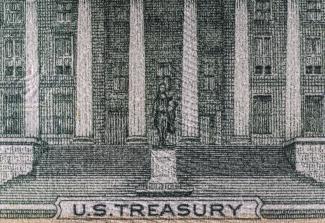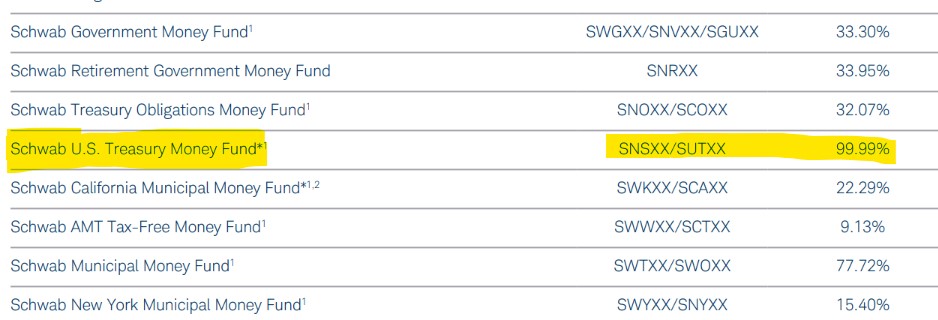
Government Money Market Funds Are Not All The Same
Money market mutual funds are, as the name suggests, a special type of open-end mutual fund. They are special because, unlike other mutual funds that have share prices (net asset values) that can fluctuate from one day to the next, money market funds are tasked by regulatory authorities with maintaining a constant daily share value of $1.00. This feat is achieved by investing in short-term (typically less than 30 days) investment-grade debt obligations. Their purpose is to provide retail investors with a safe, liquid place to park money that will typically earn interest that is close to the yield paid on individual short-term debt obligations (less the internal expenses of the fund).
Money Market Fund Types And How They Are Taxed
Money market funds that invest in ultra-short-term corporate bonds are called prime money market funds, and the interest distributed by the funds is state and federally taxable. Municipal Money market funds invest in short-term municipal government securities, and the interest they distribute to shareholders is usually exempt from federal income tax. There are a few state-specific muni money market funds that pay interest that may be both state and federal tax-free to shareholders living in that state.
Government money market funds, of course, invest in securities issued by the federal government, but many investors mistakenly assume this means the funds invest in short-term treasuries. Although most government money funds have some allocation to treasuries, it is much more common for them to also invest in short-term government agencies and a special type of bond instrument called repurchase (“repo”) agreements that are overnight loans between the Federal Reserve and member banks.
This is important information for consumers because, in most government money market funds, only a relatively small portion of the portfolio interest is paid from state tax-free treasuries and government agency securities. As such, most of the income paid to shareholders from government money market funds is subject to both state and federal income tax.
Further, even government funds that have the word treasury in their names may be fully taxable. For instance, the Schwab U.S. Treasury Money Market Fund (Symbol – SNOXX) invests almost exclusively in repo agreements. In contrast, the Schwab U.S. Treasury Money Fund (Symbol - SNSXX, and SUTXX for the Ultra share class) is typically more than 95% invested in state tax-free treasury bills. As such, most of the interest paid from this fund is exempt from state income tax if they are held in a taxable investment account.
Yes, I know that it is CRAZY that Schwab offers two funds with nearly identical names and very different underlying investments and state tax characteristics.
So Why Should You Care About What’s in a Government Money Market Fund?
I am sharing this information with you because we use SNSXX and SUTXX as the taxable money market of choice in most client-taxable investment accounts. Since most of our clients live in high-tax states, it is important to take advantage of the state tax-free interest that is paid to them. The amount of state tax-free interest paid on these accounts is not reported on your 1099-INT. Instead, taxpayers must use the funds’ annual supplemental tax reporting of treasury interest to avoid paying state income tax on that portion of the total interest paid.
Here is a link to Charles Schwab’s 2024 Supplemental Tax Information to give to your tax preparer or for your use if you file your own state income tax return. The report shows that 99.99% of the 2024 distributions from Schwab U.S. Treasury Money Fund were exempt from State Tax. Here is the excerpt from the report that shows the portion that is exempt from state income tax reporting for this fund. Note the dramatic difference between the percentages for SNSXX/SUTXX vs SNOXX.
John “J.R.” Robinson is the owner/founder of Financial Planning Hawaii and Fee-Only Planning Hawaii and is a co-founder of personal finance software maker Nest Egg Guru.


